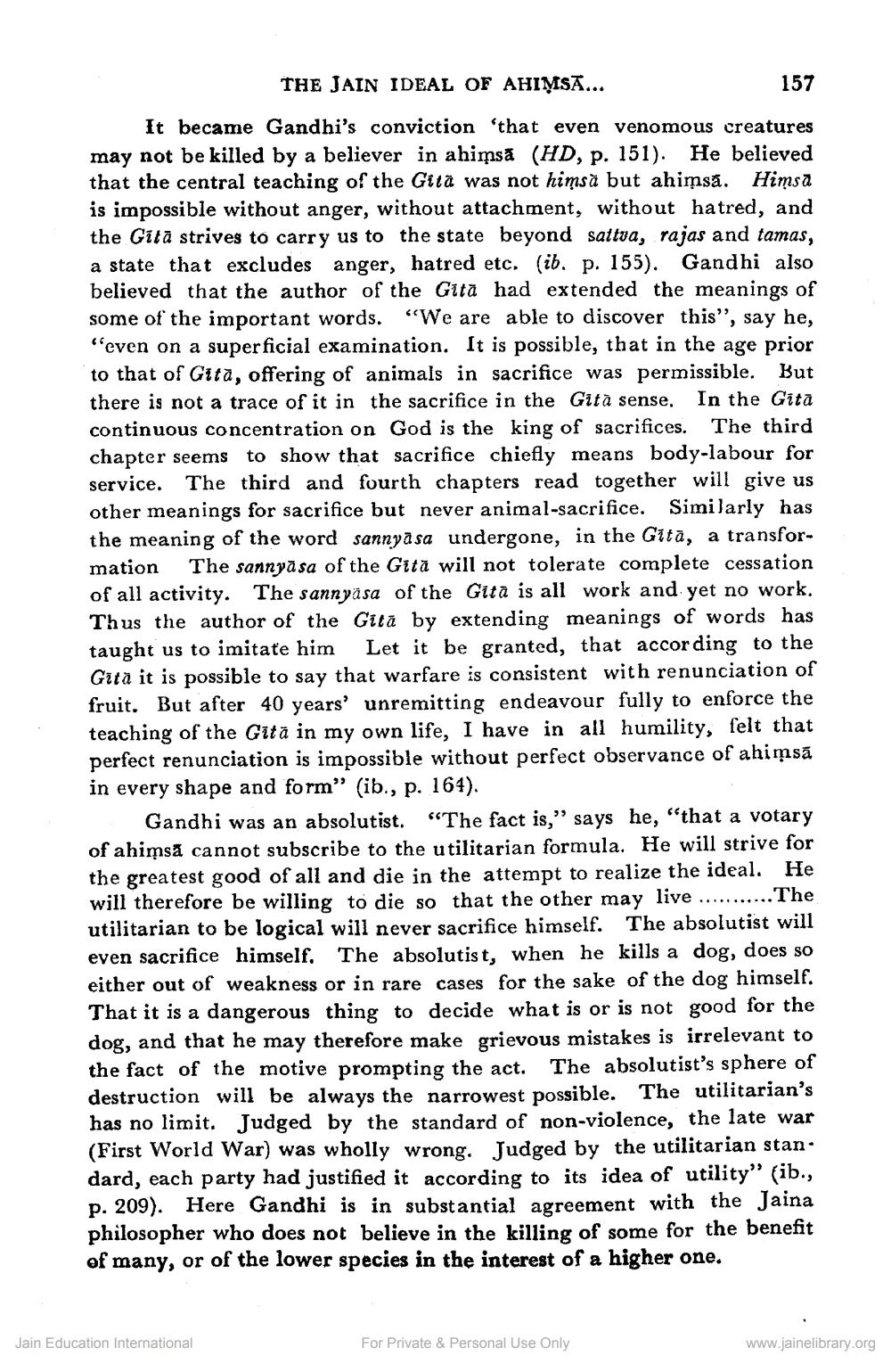________________
THE JAIN IDEAL OF AHIMSA...
157
It became Gandhi's conviction that even venomous creatures may not be killed by a believer in ahimsā (HD, p. 151). He believed that the central teaching of the Gita was not himsă but ahimsa. Himsa is impossible without anger, without attachment, without hatred, and the Gitā strives to carry us to the state beyond sattva, rajas and tamas, a state that excludes anger, hatred etc. (ib. p. 155). Gandhi also believed that the author of the Gità had extended the meanings of some of the important words. "We are able to discover this”, say he, "even on a superficial examination. It is possible, that in the age prior to that of Gita, offering of animals in sacrifice was permissible. But there is not a trace of it in the sacrifice in the Gità sense. In the Gita continuous concentration on God is the king of sacrifices. The third chapter seems to show that sacrifice chiefly means body-labour for service. The third and fourth chapters read together will give us other meanings for sacrifice but never animal-sacrifice. Similarly has the meaning of the word sannyāsa undergone, in the Gita, a transformation The sannyāsa of the Gită will not tolerate complete cessation of all activity. The sannyäsa of the Gita is all work and yet no work. Thus the author of the Gita by extending meanings of words has taught us to imitate him Let it be granted, that according to the Gita it is possible to say that warfare is consistent with renunciation of fruit. But after 40 years' unremitting endeavour fully to enforce the teaching of the Gita in my own life, I have in all humility, felt that perfect renunciation is impossible without perfect observance of ahimsā in every shape and form” (ib., p. 164).
Gandhi was an absolutist. “The fact is,” says he, "that a votary of ahimsă cannot subscribe to the utilitarian formula. He will strive for the greatest good of all and die in the attempt to realize the ideal. He will therefore be willing to die so that the other may live ........... The utilitarian to be logical will never sacrifice himself. The absolutist will eyen sacrifice himself. The absolutist, when he kills a dog, does so either out of weakness or in rare cases for the sake of the dog himself. That it is a dangerous thing to decide what is or is not good for the dog, and that he may therefore make grievous mistakes is irrelevant to the fact of the motive prompting the act. The absolutist's sphere of destruction will be always the narrowest possible. The utilitarian's has no limit. Judged by the standard of non-violence, the late war (First World War) was wholly wrong. Judged by the utilitarian standard, each party had justified it according to its idea of utility” (ib., p. 209). Here Gandhi is in substantial agreement with the Jaina philosopher who does not believe in the killing of some for the benefit of many, or of the lower species in the interest of a higher one.
Jain Education International
For Private & Personal Use Only
www.jainelibrary.org




